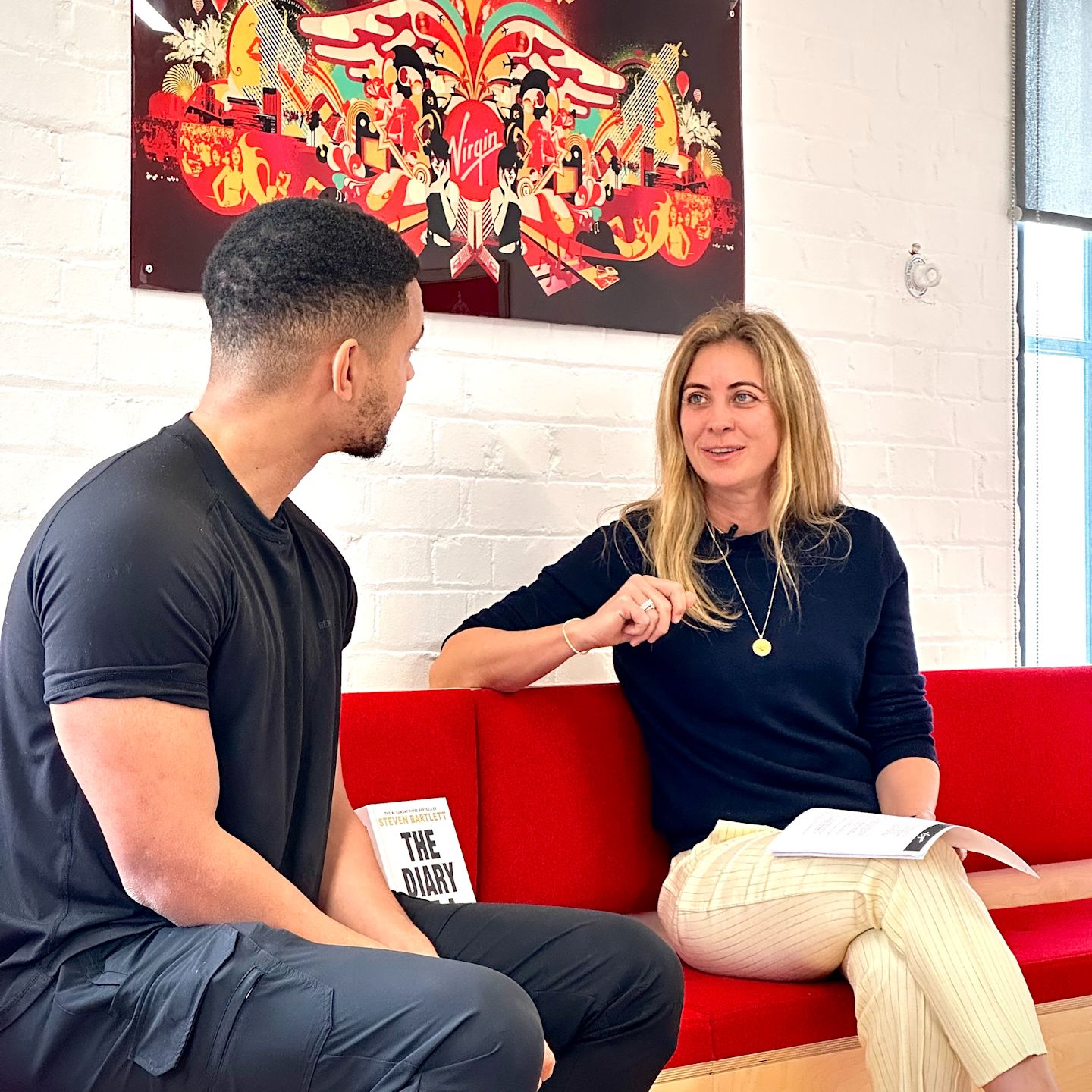10 things I learnt from Steven Barlett
After interviewing Steven Bartlett for my Meet the Author series, I wrote down so many notes which I wanted to share with you all. You can watch the full interview on my YouTube channel, but here’s what stuck with me the most:
1. “You understand the value of anything (including yourself) by the context in which you see it.” Never underestimate how much your surroundings impact your outlook and your decisions.
2. Don’t label yourself. Steven made an active choice to not label himself as a ‘social media entrepreneur’ or a ‘CEO’. This gave him freedom to explore new horizons without being shoe-horned. My dad has followed the same principle, which is how he’s been able to enter and disrupt so many different industries and markets.
3. “One thing entrepreneurs have in common is a really high conviction in something. They’re willing to absorb the risk in the pursuit of that thing that most people disagree with them on.” I often wonder if entrepreneurs are born or made, Steven makes a great point that it’s more conviction than DNA.
4. “You want to go fall off a surfboard that is coming into shore.” Failing is an invaluable learning lesson - we all know that - but it’s even better to fail at something the world suddenly cares about. AI is a good example! If you fail in an area that is building momentum and on its way to something great, and you’ll gain more skills than many people working in the field. As Steven said: “The knowledge and skills you’ll acquire will set you up for the next twenty years.”
5. If your company ever gets too big, and you give away too much control to your investors – it’s time to jump ship and start again. Always be ready to pivot and move.
6. You’ve got to be willing to go through the embarrassing, low rent phase of being new at something instead of expecting immediate results. Steven had hardly any listeners on his podcast for the first three years, and he was the butt of many jokes within his friendship circle because of it. It’s difficult to imagine that when you listen to his podcast now, but it’s true. You’ve got to start somewhere, and it’s probably not going to be all that glamourous! So long as you’re working towards something you truly believe in, the discomfort and the awkwardness will be worth it in the long run.
7. Happiness is when your expectations of where life is supposed to be going are met. Unhappiness is when your expectations of where life is supposed to be going are unmet. I loved the example Steven gave about his mother being filled with joy when she sees a bowl of jollof rice, compared to how someone at an expensive restaurant in Mayfair feels when their steak isn’t cooked right. Gratitude and reasonable expectations cannot be underestimated.
8. “Your networks and your resources will fluctuate. You will have career earthquakes. You will lose your job, get fired, be made redundant. But the thing that becomes your longevity is your knowledge and skills.” These are two buckets that no-one can take away. Take your time developing your knowledge and your skills before jumping too far ahead. This is your foundation for everything else, so make sure you take the time to fill those buckets.
9. “The most absurd thing you do (especially if it’s inefficient) says more about you and your business than anything else you do.” Steven put a giant blue slide in the office of his first business, and it got more attention than anything else. It’s a lesson he learnt from my dad – who embarked on crazy adventures as a way of getting free press for our Virgin companies when he didn’t have money for marketing. Think about storytelling and building your brand differently.
10. Double down on rare and complimentary skills. The most successful people are the ones that build up uniquely harmonious skills. As Steven said, Apple’s success comes down to the fact that Steven Jobs was incredibly talented with technology, but also with design. Seek out the complimentary skills, not the linear ones.





